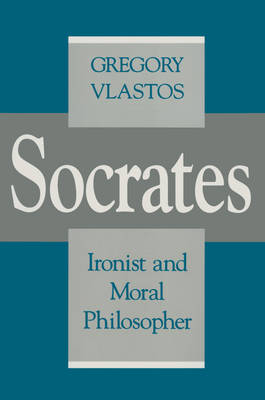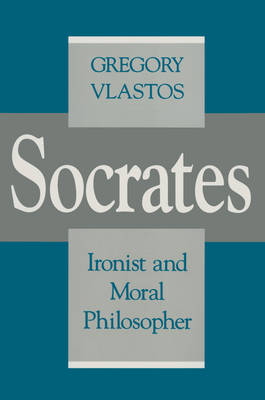
- Retrait gratuit dans votre magasin Club
- 7.000.000 titres dans notre catalogue
- Payer en toute sécurité
- Toujours un magasin près de chez vous
- Retrait gratuit dans votre magasin Club
- 7.000.0000 titres dans notre catalogue
- Payer en toute sécurité
- Toujours un magasin près de chez vous
Socrates, Ironist and Moral Philosopher
Civilian Control of Nuclear Weapons in the United States
Gregory VlastosDescription
"Gregory Vlastos's book begins from the conviction that Socrates' strangeness is 'the key to his philosophy.' It is a marvelous book, in which no major aspect of Socrates' career is eclipsed. The rigor of his arguments, the depth of his moral commitment and understanding, his complex relationship to Athenian ethical traditions, his rational religion: all this comes to life in writing whose vigor and lucidity put the challenge of Socrates squarely before the reader.... It deserves as much honor as any work of scholarship in Greek philosophy in this century."― Martha C. Nussbaum, The New Republic
This vivid and compelling study of Socrates's moral philosophy and, more generally, of his moral outlook and his attitude toward religion and society, reclaims the remarkable originality of his thought. Gregory Vlastos shows us a Socrates who, though he has been long overshadowed by his successors, Plato and Aristotle, represented the true turning point in Greek attitude toward philosophy, religion, and ethics. In his quest for the historical Socrates, Vlastos focuses on Plato's earlier dialogues, setting the Socrates we find there in sharp contrast to the Socrates of later dialogues, in which he is used as a mouthpiece for Plato's own doctrines, many of them anti-Socratic in nature.
At the heart of the book is Vlastos's perception of the paradoxical nature of Socratic thought. But Vlastos explains the paradoxes rather than explaining them away, and he highlights the tensions in the Socratic search for the answer to the question: How should we live?
The magnetic quality of Socrates' personality emerges throughout his book. Clearly and elegantly written, subtle in its arguments yet entirely accessible to non-specialists, this is major work in ancient philosophy and the history of Western thought.
Spécifications
Parties prenantes
- Auteur(s) :
- Editeur:
Contenu
- Nombre de pages :
- 334
- Langue:
- Anglais
- Collection :
- Tome:
- n° 50
Caractéristiques
- EAN:
- 9780801497872
- Date de parution :
- 25-04-91
- Format:
- Livre broché
- Format numérique:
- Trade paperback (VS)
- Dimensions :
- 153 mm x 227 mm
- Poids :
- 476 g

Les avis
Nous publions uniquement les avis qui respectent les conditions requises. Consultez nos conditions pour les avis.






